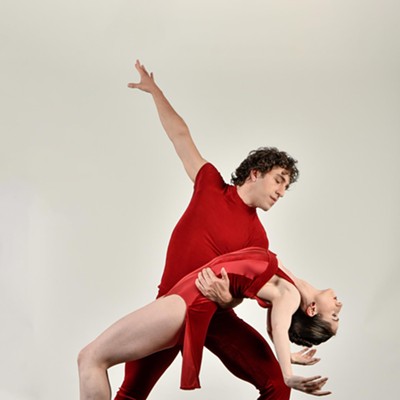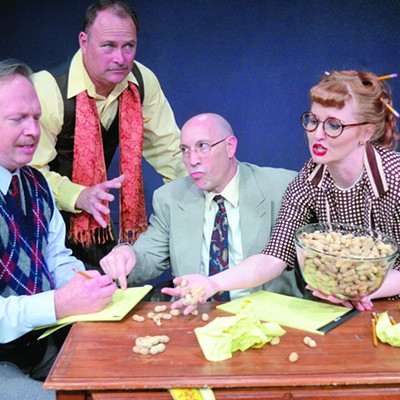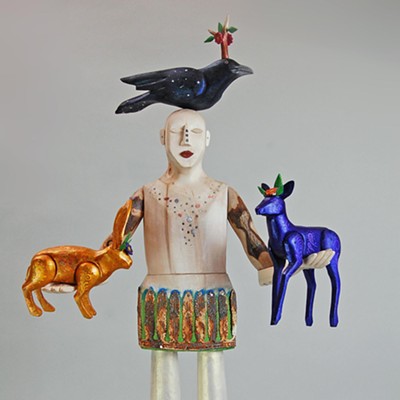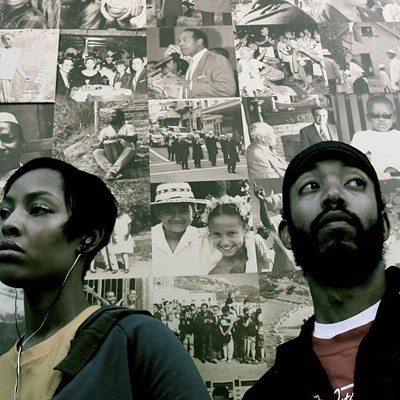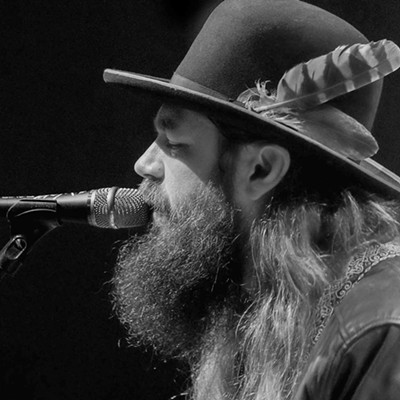True, if you're really into hot jazz and country swing, there are ample reissues of Django Rinehart, Stephane Grappelli and Bob Wills to fill your stocking. The Hot Club doesn't exactly bring your vintage swing into the new millennium, but they make the old sound dance new tricks. In Ghost Town, they have at last made it their very own.
The band's three previous releases were almost entirely drawn from standards, including such chestnuts as "Bonaparte Retreat" (1999, Tall Tales) and "Chinatown, My Chinatown" (1998, Swingin' Stampede). Ghost Train, by contrast, takes flight on its seven originals, and one paradigm-shattering cover: Aerosmith's "Chip Away the Stone" done up as a gentle, moody acoustic ballad, colored here and there with three-part harmony.
Fiddler and vocalist Elana Fremerman fashions love songs with the romantic flair of the '40s. Her "Secret of Mine" is a sugarplum treat, leavened with a soupcon of harmonic dissonance: "Now I skip instead of walking/I'm laughing 'stead of talking, all the world's melody -- but I'll never tell." In her farm-fresh Peggy Lee voice, with hints of Patsy Montana wit, she also delivers a charming country waltz, "Before You," and pouts a convincing rendering of Rogers and Hart's "You Took Advantage of Me."
By contrast, vocalist and George Barnes-style finger picker Whit Smith's original songs and vocals turn an unexpected, darker edge. His "Sleep" is a restless ode to insomnia, and "It Stops With Me" is an oddly danceable refutation of child abuse, tinged with an eastern European vibe. The gypsy is unleashed entirely in the instrumental "Fuli Tschai" ("Bad Girl"), a lively sparkle of a mazurka with a haunting fiddle middle part.
The Hot Club has always been fun in live sets, and some of that spirit is captured throughout by Ghost Town's producer, the redoubtable Gurf Morlix (Lucinda Williams, Buddy and Julie Miller). But the closing track, Will E. Skidmore's 1916 "Pray for The Lights to Go Out," would be a party in any context, and the band delivers it like a jive joint "Auld Lang Syne," complete with a woozy barroom chorus and another year's cocktail glass dropping to the perennial hardwood floor.


